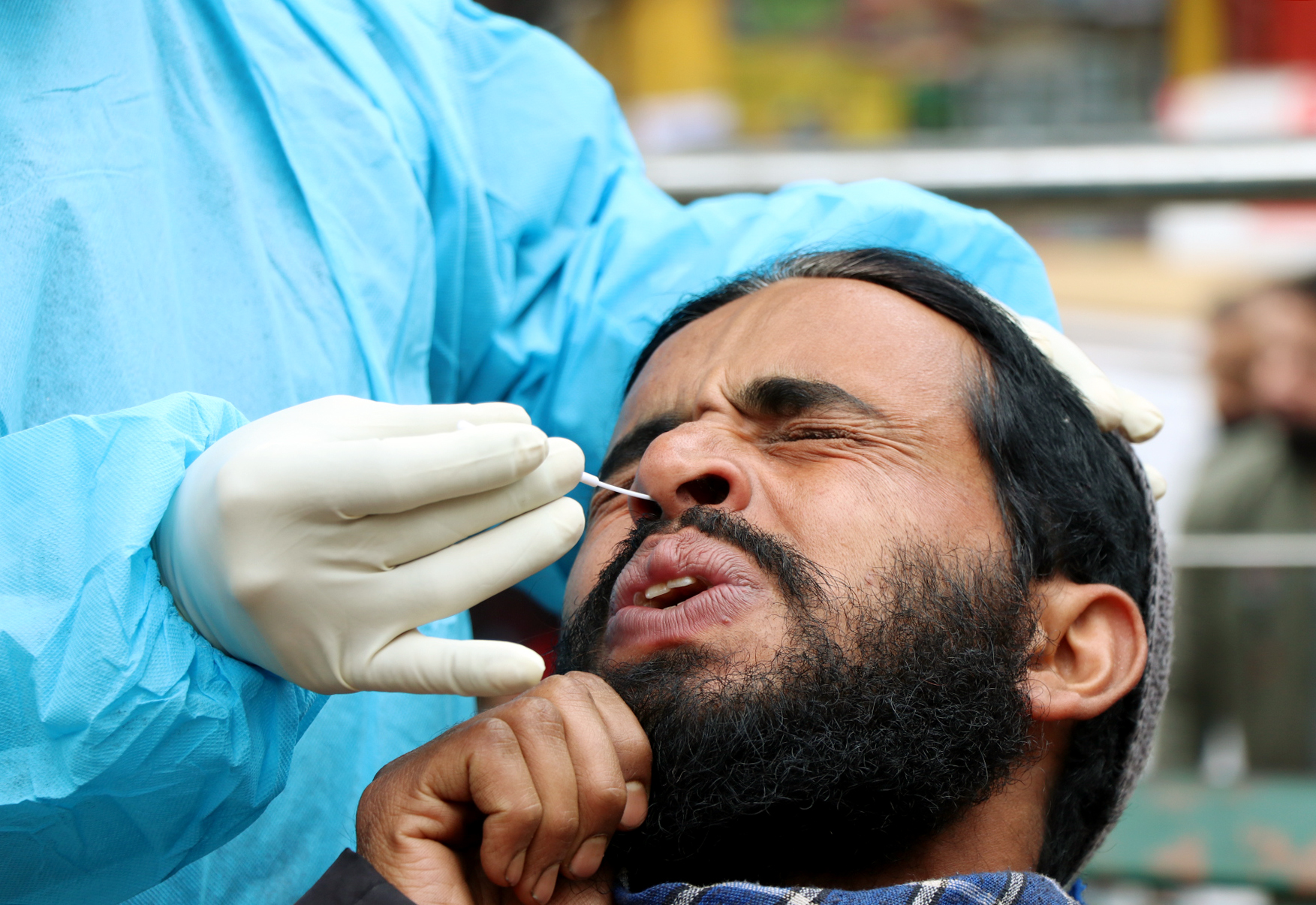New Delhi: The number of Covid-19 cases in India has been rising, and the majority of the cases that have been recorded are Omicron variants. The majority of Covid-positive patients show typical symptoms such as breathlessness, cough, body aches, and so forth.
“There are a number of causes for the increase in Covid cases, including Omicron virus variants. It has the characteristic that after contracting Omicron once, a person can contract another Omicron variant.
However, the severity of the illness can be avoided by vaccination and the immunity acquired thereby. Consequently, we may observe that while infections are growing, their severity is decreasing,” Dr G.C Khilnani, the chairman of the Institute of Pulmonary, Critical care and Sleep medicine of PSRI Hospital, told The Sunday Guardian.
As per the data received by the Ministry of Health and Family Welfare, India’s active caseload stood at 88,284 on Friday (24 June) morning.
Around 17,336 new cases were reported in the last 24 hours. Dr Suresh Kumar, medical director of the LokNayak Jai Prakash Narayan Hospital, told this paper on Thursday, “Out of 450 beds, only 28 beds are occupied. Only two patients are less than 15 years old and showing signs of viral pneumonia and the rest are around 30-40 years of age. Most of them are comorbid patients having hypertension or kidney problems. Omicron BA.2 is common among all.”
As per the data recorded by the Healthy Ministry, the cumulative Covid vaccination coverage has exceeded 196.77 crore, but this has not led to the prevention of a surge due to the total disregard of the Covid protocols.
Speaking about the surge in the NCR region, Dr Rohit Mukherjee, Consultant- Pulmonology & Sleep Medicine, Accord Super Speciality Hospital, Faridabad, told this paper,“The booster vaccination drive has failed to gain momentum and the total disregard for Covid appropriate behaviour is also contributing to the surge in cases. It also may be prudent to say the newer virus strains are better equipped to escape the immune response of the host cell. The current dominant strain is the previous Omicron wave variant BA.1 and BA.2 once it is tipped over by BA.4 and BA.5 there may be a real surge awaiting to happen as these newer strains are highly transmissible and the area of attachment being predominantly throat and nasal mucosa where the antibodies can’t effectively protect.”
Also, children with weak immune systems and comorbid patients are at a higher risk.
Supporting this, Dr Mukherjee, added, “Children with an impaired immune response or underlying asthma or lung disease are at greater risk. Since the introduction of newer vaccines for children, they have now added to their armoury of protection. Most vulnerable are the elderly population, males are at greater risk compared to females and further patients suffering from asthma, COPD, HIV, diabetics, organ transplant recipients, chronic kidney disease are more at risk.”
Some of the long-term consequences Dr Mukherjee stated are prolonged breathing difficulties, anxiety and palpitations, lethargy and body ache, prolonged unexplained low-grade fever secondary to immune dysregulation and loss of memory.
However, Kolkata-based public health expert Dr Debayan Mallik said that the exact long-term consequences are yet to be confirmed and must be studied more.
“It is too early to presume the exact long-term consequences of Covid, but we do know that certain lung ailments are the remnants of previous Covid disease, but we need to be careful about the rising cases of Covid,” he said.
‘Omicron variants driving surge in Covid cases’
- Advertisement -

